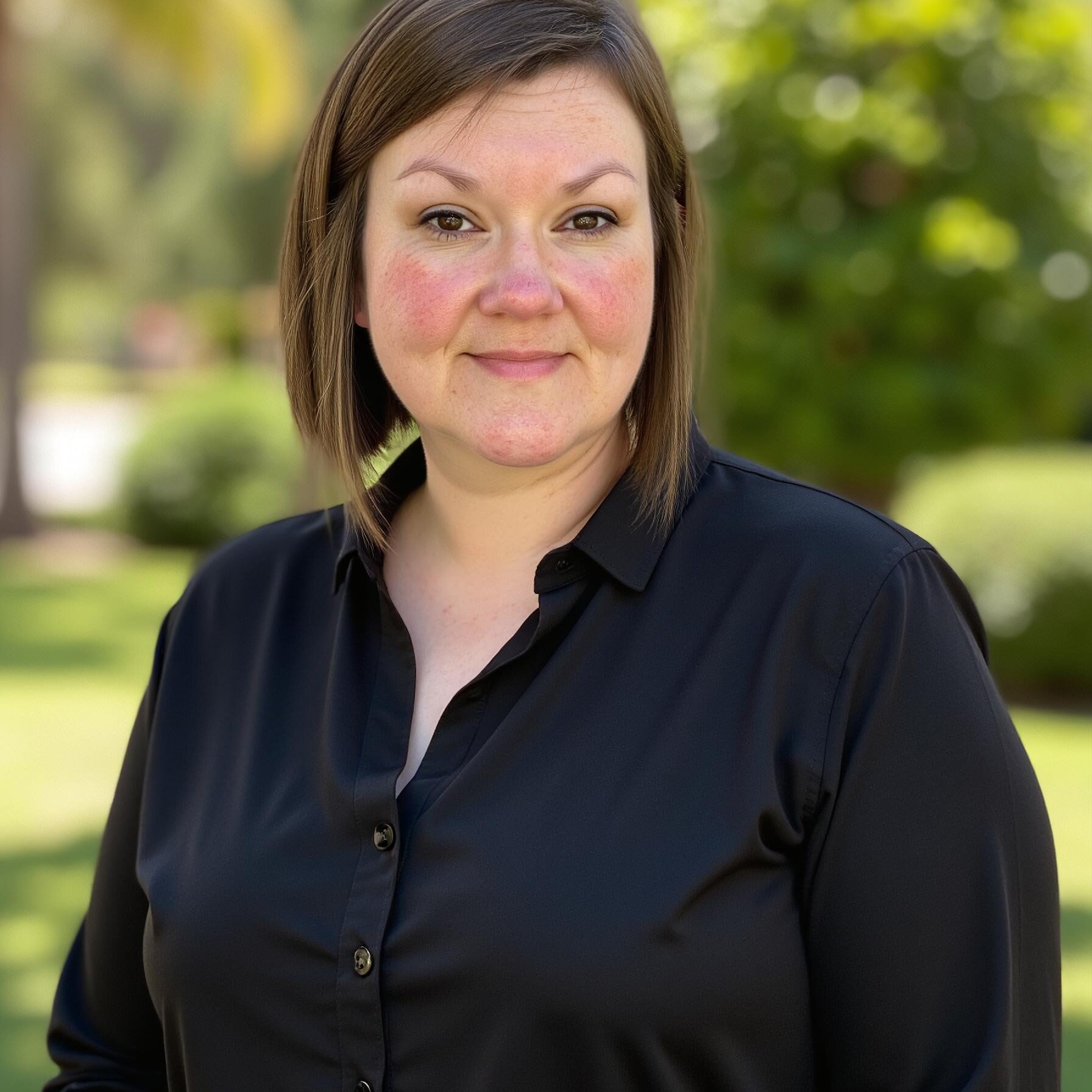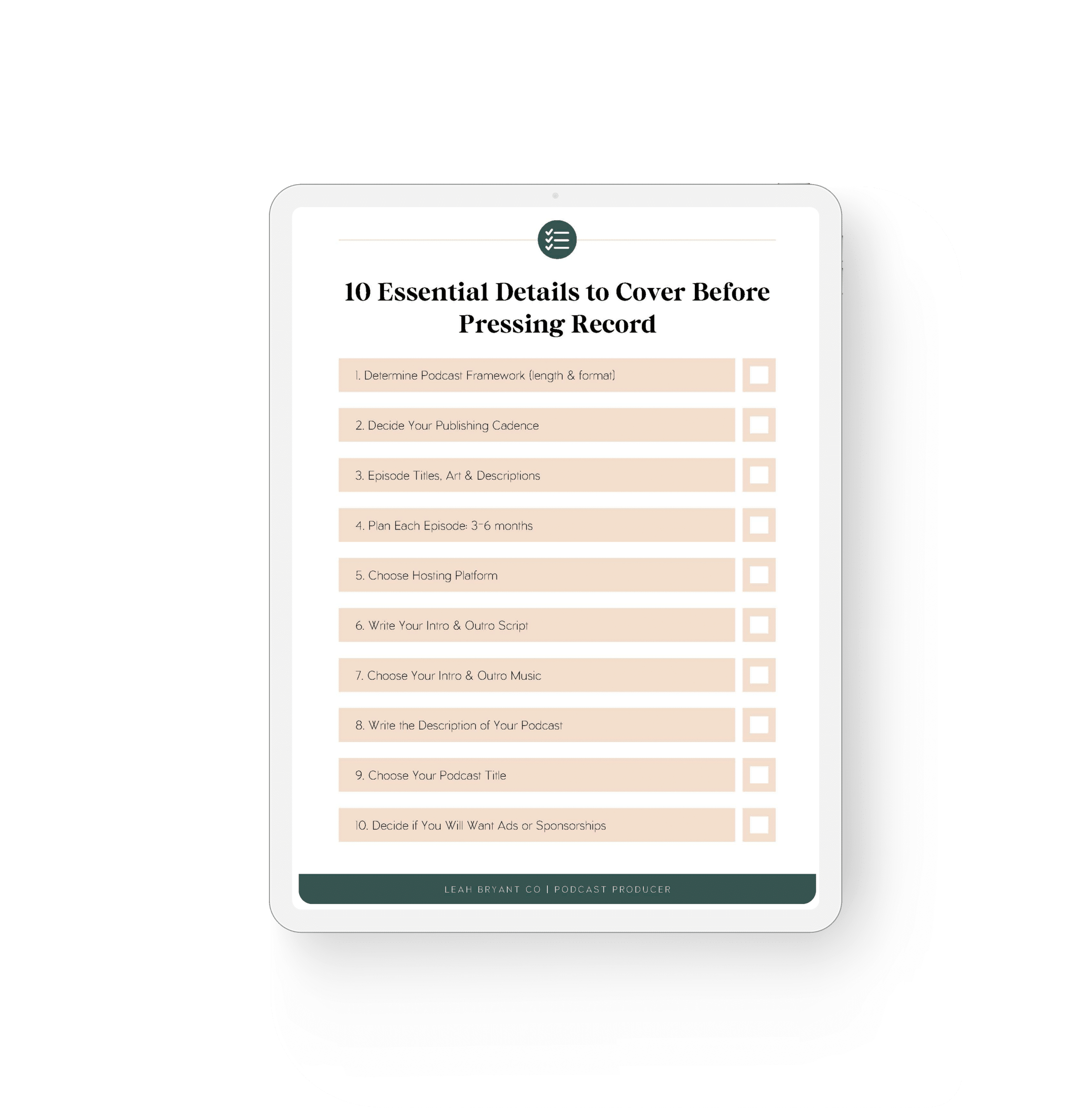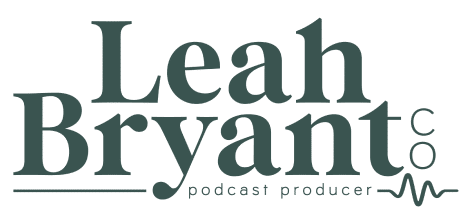
Podcast SEO Tips: How to Optimize Your Show and Grow Your Audience Through Search
Ever feel like your podcast is packed with value, but somehow still invisible?
You’re consistent. You show up. You pour your energy into episodes you know your ideal client would love… if only they could find it. But growth feels like a slow trickle. Word-of-mouth isn’t cutting it, and promotion on socials barely moves the needle.
If this sounds familiar, there’s a good chance you’ve been sold the myth that podcast SEO doesn’t matter.
But here’s the truth: most listeners aren’t just sitting around waiting for a friend to recommend your show. They’re searching.
They’re typing things like “how to grow a coaching business” or “mindset for entrepreneurs” into Spotify and Apple Podcasts…right now. And if your podcast isn’t optimized to show up in those search results, it’s essentially hiding from the people actively looking for you.
In this post, I’m breaking down why Podcast SEO (or PSO) does matter, how the myth of “word-of-mouth-only” is slowing your growth, and what you can do differently to make your podcast easier to find.
Ready? Let’s jump in.
Why Most Podcasters Overlook Podcast SEO (And How That Hurts Discoverability)
If you’ve believed that SEO doesn’t apply to your podcast, you’re definitely not alone—and it’s not your fault.
Most podcasters start with the same advice:
“Just be consistent.”
“Promote your episodes on social media.”
“Invite great guests, they’ll share it with their audience.”
And let’s be honest, those strategies do matter. However, they primarily serve individuals who are already following you, already know you, or are already connected to your network. They don’t solve the discoverability problem for someone new, someone searching for help, answers, or inspiration, and who doesn’t know your show exists yet.
At the same time, SEO is often lumped into the “blogger world” category. It’s seen as something for websites, not audio content. Add to that the fact that SEO terms can sound dry or overly technical, like meta descriptions, keyword density, and search intent, and it’s easy to tune out.
Plus, podcast platforms aren’t exactly helping. Apple Podcasts, Spotify, Overcast, Pocket Casts… none of them are clear about how their search algorithms work. There’s no how-to guide from them. So podcast hosts are left guessing. And when you’re already juggling planning, recording, editing, and promoting, it makes sense to fall back on what feels more manageable: create the content, show up consistently, and hope the right people stumble across it.
The result? SEO often feels like an “extra” thing you might get to later, if you ever have the time.
But here’s what most creators don’t realize: even if you’re not thinking about SEO, the platforms are.
Apple Podcasts and Spotify already index your episode titles, descriptions, and show notes. Google is crawling your podcast website, if you have one. Every episode you publish is being scanned for relevance. So if those pieces of text aren’t written with search in mind, you’re missing a massive opportunity to show up when someone types in the exact topic you’re talking about.
In other words, it’s not that SEO doesn’t exist in the podcasting space; it’s that most podcasters aren’t using it intentionally.
And that’s the shift: SEO isn’t a separate strategy. It’s a strategic way to do what you’re already doing, such as writing episode titles, publishing show notes, and creating content that your audience cares about. The only difference? You’re doing it in a way that makes your podcast findable on purpose, not just by accident.
How Ignoring Podcast SEO Hurts Growth, Discoverability, and Leads
Believing that SEO doesn’t matter might feel harmless—but it quietly creates an invisible ceiling over your show’s growth.
And here’s the thing: it’s not because your content isn’t strong. It’s because people can’t find it.
Here’s what that actually looks like in practice:
- Your growth stalls…then plateaus.
You’re showing up. You’re publishing consistently. You’re promoting on Instagram, maybe even bringing on amazing guests. But your download numbers aren’t budging. Week after week, it feels like you’re speaking into the void. Not because your content is off, but because it’s not being surfaced in the places where new listeners are searching. - Your dream audience is finding someone else.
You’re not the only one talking about your topic. And if your episode titles are vague or your descriptions are thin, your ideal listener may scroll right past your show, even if it’s exactly what they need. Meanwhile, a competitor using clear, search-friendly language is appearing and capturing the click. Not because their content is better, but because it’s easier to find. - You miss out on warm leads, referrals, and visibility.
Your podcast should be building authority for you while you sleep. But if your show isn’t discoverable in Google or in-app search, it can’t do its job of attracting aligned clients, collaborators, or opportunities. And the ripple effect is real…lower downloads mean fewer listens, fewer shares, and fewer chances to make the impact (and income) your podcast was meant to create.
The worst part?
You might start thinking you’re the problem.
You wonder if your content isn’t good enough. If maybe you chose the wrong niche. Or that podcasting “just isn’t working for you.”
However, the truth is that this isn’t a content issue — it’s a visibility issue.
And that’s actually good news, because visibility can be fixed.
Let’s talk about how.
What Podcast SEO Really Is (and How It Boosts Discoverability + Downloads)
Here’s the real story: Podcast SEO is one of the most underused and most powerful growth tools at your disposal.
Your audience is out there, actively searching for the exact topics you talk about. Not hypothetically. Not maybe. Right now, someone is typing “how to grow a coaching business” or “best mindset tips for entrepreneurs” into Apple Podcasts, Spotify, or even YouTube.
And if your podcast content is structured to show up in those search results?
Everything changes.
Suddenly, you’re not waiting for listeners to stumble across your show. You’re showing up right where they’re already looking.
Here’s how this works in real life:
Keywords Are Entry Points
Your titles, descriptions, and even episode content hold massive potential! If they reflect the real words your audience is typing into search bars. When you name an episode “How to Grow a Coaching Business Without Burning Out,” you’re not just being clear—you’re aligning with search intent. And that alignment turns into clicks, listens, and loyal followers.
Text Powers Podcast SEO
Search engines and podcast platforms can’t “listen” to your episodes. They rely entirely on the text you provide, such as your show description, episode summaries, show notes, and transcripts. If that text is vague or sparse, the algorithm has no context for what your episode is about. But when it’s keyword-rich and structured? You give Google and Spotify a clear signal: “This episode is about exactly what your user is looking for.”
Content Structure Signals Relevance
Clear categories, keyword-aligned titles, and consistent formatting all help podcast platforms and Google understand exactly what your show is about and serve it to the right audience. It’s not just about what you say, it’s about how clearly you signal what your show is about.
Distribution Compounds Over Time
Every time you create an optimized episode page on your site, get a backlink from a guest’s blog, or repurpose an episode into a keyword-aligned blog post or YouTube video, you create another doorway into your brand. The more doors you open, the more discoverable you become and the less you have to rely on chance or virality.
And this isn’t just theory. I’ve seen this transformation firsthand.
One of my clients, Katie, had a fantastic show, valuable insights, great delivery, and a clear niche. But she wasn’t getting traction. Her downloads were stagnant. Her podcast wasn’t attracting the right listeners. And she was starting to wonder if it was all worth it.
When we audited her show, the issue became crystal clear: it wasn’t a content problem. It was a findability problem.
So we rebranded her podcast with SEO in mind. We tightened up her show name, realigned her episode titles and descriptions with her audience’s actual search terms, and created optimized episode pages on her website.
The result? Her downloads lifted. More aligned listeners began to show up organically. And her podcast finally became what it was meant to be: a steady, sustainable visibility engine for her business.
Podcast SEO Tips: How to Optimize Your Podcast for Search
So now that you know SEO isn’t just for blogs, and that your podcast can (and should!) be discoverable, what should you actually do?
Here’s what I recommend to shift from being “hard to find” to being the obvious choice in search results. These are the exact steps I guide clients through within my coaching containers, providing tailored support at every step.
1. Rethink Your Episode Titles
Most podcasters name their episodes for themselves, not their listeners. Titles like “My Journey” or “Lessons From a Tough Week” might be meaningful to you, but they’re invisible in search.
You want titles that reflect what your ideal listener is already typing into Google or Apple Podcasts.
🔁 Instead of:
“Episode 12: My Journey”
✅ Try:
“How I Scaled My Coaching Business to 6 Figures Without Burning Out”
The second example includes a clear topic and a promised outcome, two ingredients that increase click-through and search visibility.
Inside my coaching containers: I help you build a Naming Framework that balances searchability and your voice. Together, we create repeatable formulas for titling episodes so they always sound like you and appear in search results. I’ll also audit your past titles so we can update the ones holding you back.
2. Turn Show Notes Into SEO Assets
Too many podcasters treat show notes as an afterthought, a quick summary or list of links. But when written strategically, your show notes can be the exact text Google and podcast apps use to surface your content.
Think of them like a blog post for your episode. They should include:
- A short, compelling summary using keywords
- H2 subheadings that reflect search intent
- Bullet points for scannability
- Internal links to related episodes or offers
- A strong call-to-action
Inside my coaching containers: We walk through a Show Notes Blueprint that helps you turn your existing notes into search-friendly assets. I’ll also review your writing and offer edits that make your notes easier for both algorithms and humans to read.
3. Host Your Podcast on an Optimized Website Hub
Relying solely on podcast directories means you’re missing out on valuable Google traffic. Having your own podcast hub, a dedicated section on your website with one page per episode, gives you full control over how your content is indexed and discovered.
Each episode page should include:
- A clean, keyword-aligned URL (like /podcast/episode-title)
- A unique, optimized meta description
- The full transcript (with formatting)
- Show notes with internal links
- Clear buttons to listen, subscribe, or take action
Inside my coaching containers: I help you design or refine your podcast hub so it becomes a true SEO powerhouse. Whether you’re starting from scratch or optimizing an existing site, I’ll guide you through the structure, design elements, and technical details that boost visibility and conversion.
4. Be Intentional With Keywords
Keywords are the foundation of being found, but most podcasters guess. You need to use both short-tail keywords (e.g., podcast marketing) and long-tail keywords (e.g., how to attract coaching clients with a podcast) to cover both broad and specific search intent.
The trick? Use your audience’s language, not industry jargon. The way they discuss their challenges is the exact language that should show up in your content.
Inside my coaching containers: We conduct keyword research together, utilizing both free and paid tools, real search data, and client conversations. I help you identify high-impact terms and build them into your descriptions, titles, show notes, and even your episode content planning.
5. Repurpose Smart
One episode can, and should, become multiple search-friendly assets. That doesn’t mean more work. It means working smarter by getting your message in front of people across different platforms where they’re already searching.
Every episode can become:
- A keyword-optimized blog post
- A YouTube video with transcript-based captions and description
- 2–3 social posts that include hashtags and keyword phrases
- A newsletter or LinkedIn article using the same core idea
Inside my coaching container: I help you create a repurposing system that fits your workflow and content style. We map out what to repurpose, where to publish it, and how to do it in a way that’s strategic and sustainable — not overwhelming.
6. Track & Tweak
SEO isn’t a one-and-done situation. Some strategies will yield results quickly (such as using better titles to increase clicks), while others (like Google indexing) require time. The key is to track what’s actually working, so you can make smart adjustments.
Start with:
- Buzzsprout stats: check your top-performing episodes
- Apple/Spotify analytics: see what people are clicking on
- Google Search Console: track impressions, clicks, and search terms that bring traffic to your site
Inside my coaching container: I teach you exactly how to read your analytics and utilize them effectively. You’ll learn what to pay attention to (and what to ignore), how to identify keyword trends, and how to evolve your content strategy based on real data. No spreadsheets required (unless you want them!).
Podcast SEO in Action: How to Make Every Episode More Searchable
Each of these steps isn’t only about SEO. It’s about making your podcast easier to find by the exact people who need it most. And when done consistently, they create a compounding effect that attracts more aligned listeners, qualified leads, and real momentum over time.
And the best part? You don’t have to figure it out alone.
I help clients like you take these steps within a clear, supportive process that includes feedback, strategy, and systems, making this approach doable and sustainable.
Case Study: How Podcast SEO Helped Katie Grow Her Downloads and Attract Clients
Before we worked together, Katie’s podcast had all the ingredients of a show that should have been growing: engaged listeners, insightful content, and a strong message rooted in her niche. But her download numbers had stalled. Despite her consistency and effort, the show wasn’t attracting new listeners, and her visibility had flatlined.
She was in what I call the Podcast Plateau Zone, creating great content but not seeing the return. No traction, no new audience growth, and no leads coming in from the podcast. And understandably, she was frustrated.
That’s when we dug into a full Podcast Audit + SEO Strategy + Rebrand.
Together, we uncovered the real issue: her audience couldn’t find her. The podcast name was clever but vague. Episode titles didn’t reflect the actual search terms her ideal listeners were using. Her show notes were nonexistent, her episode descriptions lacked keywords, and were not structured to be picked up by search engines.
So, we got to work.
Here’s What We Changed:
A New, Search-Friendly Podcast Name
We rebranded the podcast title to something that clearly spoke to her audience’s pain points and what they were looking for, using the exact language her ideal clients were typing into Google and Apple Podcasts.
Keyword-Optimized Episode Titles and Descriptions
We applied a naming formula that made each episode easy to understand and easy to find. Titles began leading with searchable topics + specific outcomes. Descriptions were rewritten with a blend of listener-friendly language and search-intent keywords.
Strategic Show Notes and Episode Pages
Every episode received a full show notes treatment, structured like a blog post, complete with headers, bullet points, internal links, and a transcript. We also revamped her podcast hub on her website, providing each episode with its own SEO-optimized page featuring a clear URL structure, meta descriptions, and links to relevant offers or resources.
The Results?
Within weeks of relaunching, Katie saw a clear and measurable shift:
- Her downloads increased, especially on episodes aligned with her newly optimized titles.
- New listeners were finding her show organically, not just through referrals or social media.
- Inquiries from ideal clients began to come in, people who said they had found her through her podcast and felt like she was “in their head.”
- And most importantly, her podcast finally felt like it was doing the work it was meant to do…attracting, nurturing, and converting the right people.
This shift didn’t happen because we changed the content. The content was already strong. What changed was the discoverability strategy wrapped around that content.
In Katie’s own words:
“We never would have thought of a podcast rebrand without Leah coming forward and saying, ‘I think the fundamental problem is your audience can’t find you.’”
Her story is such a great example of what’s possible when you pair intentional SEO with a podcast that already has something powerful to say. Your show doesn’t need more effort—it needs more visibility. And that’s exactly what podcast SEO delivers.
Podcast SEO FAQs: Common Questions (And Real Answers)
“Isn’t SEO just for blogs and websites?”
It’s a common misconception, but nope…podcast SEO is very real. Platforms like Apple Podcasts and Spotify crawl and index the text that’s attached to your audio. That means your show title, episode titles, descriptions, show notes, and transcripts are all searchable just like a blog post. When you optimize these elements with the right keywords and structure, your podcast becomes findable through both search engines and in-app searches.
Think of it this way: your audio is valuable, but your written content is what makes it discoverable.
“Won’t this make my show sound robotic?”
Not at all. SEO isn’t about stuffing awkward terms into your content. It’s about using the exact phrases your audience is already using. You’re not changing what you say; you’re just making it easier for your content to connect with the right people.
For example, instead of titling an episode “Let’s Talk About Burnout,” you might say: “How Coaches Can Avoid Burnout and Still Grow a Thriving Business.” It’s still you, just with more clarity and intent.
And don’t worry, I help clients blend strategy with voice so your show sounds natural, approachable, and you, not robotic.
“Is word-of-mouth still important?”
Yes—and it always will be. Referrals and personal recommendations are powerful. But the problem? They’re not predictable or scalable.
Relying solely on word-of-mouth means your growth depends on people sharing information, rather than searching for it, and that limits your reach. SEO provides a parallel engine: one that runs 24/7 in the background, attracting new listeners on autopilot while your audience continues to grow through relationships and shared content.
Think of it as adding strategy to serendipity.
“Do I have time to add SEO to my already full podcasting process?”
Here’s the truth: you’re already doing 80% of what you need.
You’re already naming episodes, writing descriptions, publishing notes, and sharing your show. SEO simply helps you do those things more intentionally so they work harder for you. With the right systems (which I help clients build), SEO becomes a natural part of your workflow, not an extra burden.
Think: naming formulas, plug-and-play show notes templates, and repeatable repurposing routines. You don’t need more time…you need a better process.
“How long will it take to see results?”
It depends on your starting point, but some wins come fast. When we rewrite episode titles for clarity and keyword alignment, many clients experience immediate increases in click-throughs and episode listens from podcast app searches.
Other results, like ranking in Google search or building up compounding organic traffic to your episode pages, take more time, but the payoff grows month over month.
Think of it as planting seeds: some sprout fast, others take a bit longer, but they all work together to create long-term, sustainable growth.
Why Podcast SEO Matters and What Becomes Possible When You Use It
If you’ve made it this far—go you! 🎉 You’ve just uncovered one of the most overlooked levers for podcast growth: Podcast SEO.
You now know it’s not just a “nice-to-have”, it’s a core driver of visibility, discoverability, and long-term success.
We’ve broken down why the old belief that “word-of-mouth is all you need” actually keeps your show stuck in obscurity. And we’ve replaced it with something much more powerful: the knowledge that search is happening, with or without you. The good news? You now know how to make it work for you.
When you start optimizing your podcast with intention—titles, show notes, keywords, structure- you stop relying on luck and start building strategic visibility that grows over time.
Here’s what becomes possible when you apply what you’ve learned:
- Aligned audience growth – You’ll finally start attracting the right listeners, people who are already looking for the exact value you offer.
- Qualified leads who already trust you – No more cold pitches or trying to convince someone you’re the right fit. Your content builds trust before they ever book a call.
- Sustainable visibility that doesn’t require constant hustle – Every episode becomes an evergreen asset—bringing people in weeks, months, even years later.
- Clarity, confidence, and momentum – Instead of guessing what to name an episode or how to promote it, you’ll have a repeatable system and a clear strategy that gives you traction and peace of mind.
And perhaps most importantly: You’ll stop wondering if your podcast is “working” and start knowing it’s doing its job.
Because the truth is:
Your podcast isn’t meant to sit quietly on the sidelines. It’s meant to lead, connect, and convert. It’s meant to be discovered by the people who need it most.
And now you know exactly how to make that happen.
You’ve got this.
Let’s Make Your Podcast Discoverable: Book a Growth Strategy Call
You don’t need to keep guessing why your show isn’t growing. You do need a strategy that works.
Book a free Podcast Growth Discovery Call and let’s talk about how to turn your podcast into a discoverable, lead-generating asset—without the overwhelm. We’ll review your podcast, identify what’s hindering your visibility, and discuss how to address it.
Not ready to chat just yet?
Subscribe to my newsletter and get weekly, actionable tips for growing your podcast with strategy, clarity, and search in mind. Actionable advice that helps your show reach the right ears.
Your podcast has so much potential. Let’s finally make it visible.

Meet Leah
The only thing I love more than binge listening to podcast, is helping you publish a podcast you love!
I'm looking for...

